Garabala: ‘Our interaction with other cultures shouldn’t be seen as a threat to our identity’
June 20, 2019
Garabala has increasingly become part and parcel of musical life in Beirut—a cherished phenomenon that brings the thrill of experimental concerts to the party spirit of modern-day kefs. After a captivating performance at this year’s installment of Innovate Armenia in LA, we met some of the band members before they hit the stage for a hometown concert.
You may have heard their music in h-pem’s promotional videos. You may have played their music in the car (the Garabala sound will get you through even the worst traffic bottleneck). You may have even met one of their friendly members on a busy street and halted your steps to ask: “Any new songs yet?”
Garabala has come a long way from its beginnings as four young musicians commissioned to play a few folk tunes at a cultural event in the Lebanese-Armenian village of Anjar in 2011. Their “deconstructive” approach to the arrangement of age-old favorites and the different genres they blend to create a nostalgic sound makes their fusion of folk melodies surprisingly resonant, timely, and relatable.
Yet, they had to reach a breaking point to bounce back and come back stronger than ever. Last year, a few of Garabala's members decided to move abroad, which prompted some soul-searching and compelled the band to fully commit to their mission. The love they had for their music and their fans enabled them to surmount distances and they started to take themselves more seriously. Instead of going their separate ways, they carved a niche for themselves among folk bands in the Armenian Diaspora by releasing their first album, the self-titled “Garabala.”
With several sold-out performances under its belt, the seven-member strong band keeps enhancing its competence. Early this year they debuted their first original song, "Nor Hayasdan." And just like its namesake, Karabala, who would extend flowers in the streets of Yerevan to the delight of passersby, the band offers a plethora of sounds with a distinctive touch.
The summer solstice is just days away and so are Garabala's upcoming concerts at Fete De La Musique on World Music Day. The sun is still lingering over the Mediterranean as the band members arrive one by one at an underground cell, where sound insulated walls are covered with curious graffiti and posters from bygone eras. It’s practice session and they make room in the incredibly small space, gradually warming up to the idea of talking about their latest performances and sharing their secrets.
Check out photos and videos from Garabala below and share your impressions with us. For more songs visit Garabala’s YouTube channel.
***
Loucig Guloyan-Srabian: How would you describe your experience of playing at a festival like Innovate Armenia that explores identity as “a changing and shifting force”?
Khatchig Hrag Demirdjian: The Innovate Armenia slogan goes well with our aspirations. It’s about not losing our identity and musical traditions, but also about presenting them in new ways. You don’t have to play folk tunes on old-time instruments if the younger generation would appreciate something different. Why not? They start singing along not so familiar songs like “Yes Saren Gukayi” by Komitas, no matter in what form these songs are delivered.
We try to arrange beautiful but lesser-known songs and make them accessible. Fortunately, once we deliver a song, it becomes well-known, and this is highly rewarding, considering that this has always been the band’s goal from the start. After performing in Lebanon for many years, we were keen to take our music to nearby communities. It came as a bit of a surprise to be invited by an Armenian institution in Los Angeles. Among our audience were Armenians from different countries. It was a vital experience [for us]. We were reaching out to new audiences who had never watched our progress and were not engaged with this form of music-making. We were shouldering a new responsibility to meet expectations. The challenge of achieving an immediate effect was not the same as performing for fans who were familiar with our style. However, we have built up confidence over the years, and the reaction of the audience was positive.
Hagop Harfoushian: Also, it was our first outdoor concert experience. We usually perform to audiences seated at an interactive level, where energy and enthusiasm flow back and forth. However, I believe within each one of us there was the will to create that same enthusiasm.
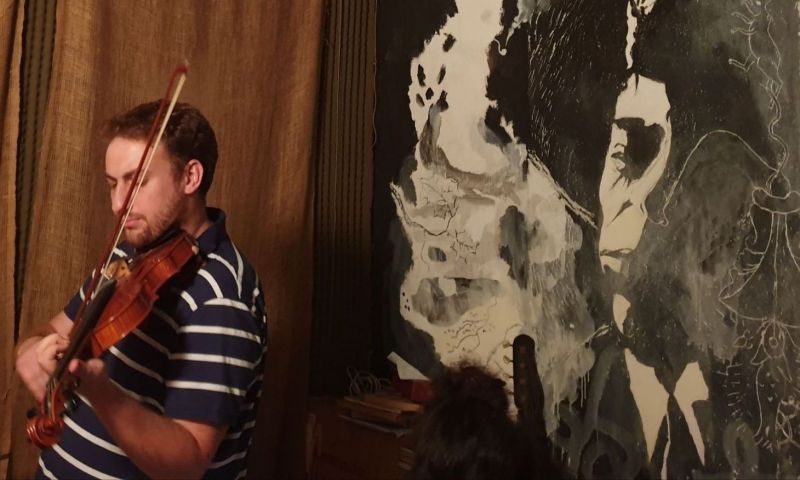 Khatchig Hrag Demirdjian (violin) on the shared sense of responsibility: “We hold a great responsibility not only to ensure the flow of enthusiasm on stage, where knowing your audience comes into play, but also to retain our energy and perform equally well even in front of an unresponsive audience.” (Photo: By Loucig Guloyan-Srabian/h-pem)
Khatchig Hrag Demirdjian (violin) on the shared sense of responsibility: “We hold a great responsibility not only to ensure the flow of enthusiasm on stage, where knowing your audience comes into play, but also to retain our energy and perform equally well even in front of an unresponsive audience.” (Photo: By Loucig Guloyan-Srabian/h-pem)
L.G.S.: Why does Garabala sound different than any other Armenian acoustic folk band? Where does its innovative spirit come from and how does it reveal itself?
K.H.D.: It’s hard to define the Garabala style. Perhaps it’s easier for the audience to identify it. After arranging a new song one of us may declare: “This is not Garabala!” We don’t know what it takes for a song to be Garabala, but we do know when it’s not. Another factor is that there are no central figures in the band. The vocalist may sing just a few seconds and the band may carry the song to its end. The violinist may step back if he doesn’t have anything to add to the song itself, even if he has had a big say in its arrangement. There is no issue of ego here.
You don’t have to play folk tunes on old-time instruments if the younger generation would appreciate something different.
Khatchig Hrag Demirdjian
The audience may not be aware of this blend of effects and the chemistry involved. When we go on stage, we can be sure that we will have fun. This is especially true at Lebanese venues like Metro Al Madina, where even the staff know our songs by heart. Our goal is to make music that would appeal to everyone: One should like our music without knowing why; even experts should find something more to it. It’s a compelling challenge to satisfy both extremes. You may appeal to the discerning taste of the professional musician, yet sound boring to ordinary folks, or fail to satisfy a cultured audience if you don’t have anything new to offer.
H.H.: The Garabala sound is a blend of the rhythmic, melodic, and harmonic tastes of each of the band members, as well as their favorite genres—gypsy, jazz, Latin, metal, etc.—that are reflected in the arrangements. This unique sound helps us carry out our mission effectively: to rearrange Armenian folk music in a way that appeals to both Armenian youth and non-Armenians alike.
To achieve this, we have to be innovative and paint outside the lines. We arrange new songs with this mindset and are always conscious about preserving the Garabala sound as well as the musical quality of the band. We do not arrange new songs for the sake of expanding our repertoire. We are able to achieve this level of innovation by appreciating the differences of each of our band members.
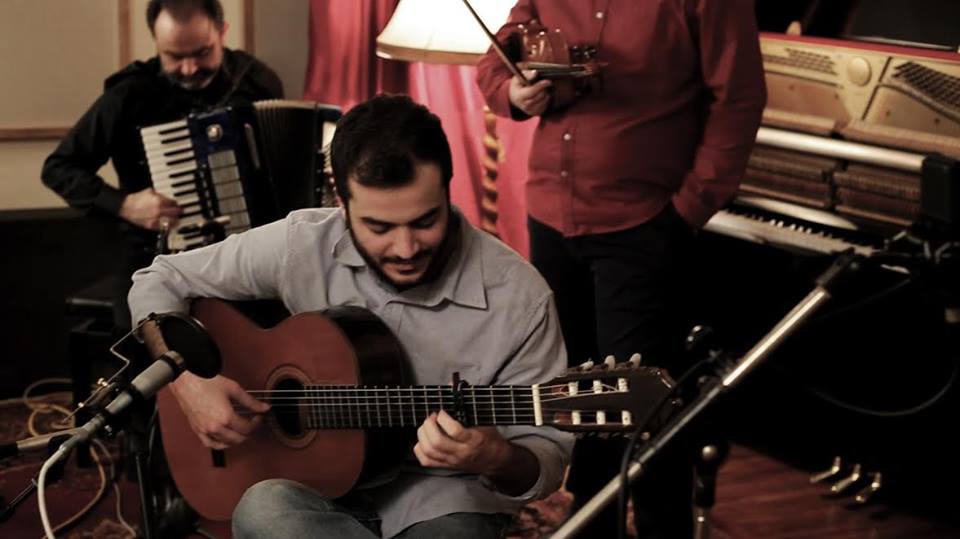 Hrag Karakashian (vocals, guitar) on his experience of participating in intercultural events: “My knowledge of Armenian music was expanded by performing with non-Armenians. I learned an Armenian tune from an Iraqi person while talking about the latest revolution in Armenia, and used it in 'Nor Hayasdan,' our first original song. Interactions with different cultures help us contribute to Armenian culture.” (Photo courtesy of Garabala)
Hrag Karakashian (vocals, guitar) on his experience of participating in intercultural events: “My knowledge of Armenian music was expanded by performing with non-Armenians. I learned an Armenian tune from an Iraqi person while talking about the latest revolution in Armenia, and used it in 'Nor Hayasdan,' our first original song. Interactions with different cultures help us contribute to Armenian culture.” (Photo courtesy of Garabala)
L.G.S.: Taking Armenian folk music outside of Armenian circles has been quite the challenge for modern Armenian folk groups. You had the recent chance to share a signature song with the Folklang Intercultural Orchestra. Why do you think it’s paramount that we perform Armenian music for non-Armenians? How does the experience reflect back on you as young Armenian musicians?
Hrag Karakashian: Being part of the Folklang Intercultural Orchestra was one of the highlights of our musical journey. During such events, one realizes that music is an international language which has the unique power of bringing people together. It inspires people to embrace their differences instead of using them as excuses for separation and polarization. It is paramount to create quality music by mixing different traditional sounds, rhythms, and genres, so that sharing and performing Armenian music with non-Armenians becomes part of the intercultural experience of creating music and not the ultimate goal itself.
Our interaction with other cultures shouldn't be seen as a threat to our identity. On the contrary, it should be seen as an opportunity for growth, which ensures the best possible preservation.
Hrag Karakashian
Music is an evolving entity and the cultural diversity that Folklang celebrates is a key factor that carries the musical evolution forward. Armenian culture is part of this evolving family and our interaction with other cultures shouldn't be seen as a threat to our identity. On the contrary, it should be seen as an opportunity for growth, which ensures the best possible preservation. Being exposed to such a diverse environment, one learns a lot about different cultures. It’s a wonderful way to expand your musical knowledge. However, what’s more important is the new perspective that you develop towards your own culture by realizing its worth. A Spaniard can appreciate Armenian music in the same way that we appreciate gypsy or flamenco music.
L.G.S.: “Music is a unifying force” for sure, however, how would you describe the distinctive qualities that make Armenian music sound exotic? What do you make of the paradox?
K.H.D.: The beauty of music is that it is common and unique at the same time. It is the common ground between cultures. There is no language involved; anyone can hear, feel, and enjoy the music of any culture. At the same time, the music of each culture is unique and has many particularities. As a band, we try to reinvent Armenian folk music for present times by adding our own touch, all while keeping its unique characteristics. Striking a balance can sometimes be very challenging, but this is what it takes to write a good song.
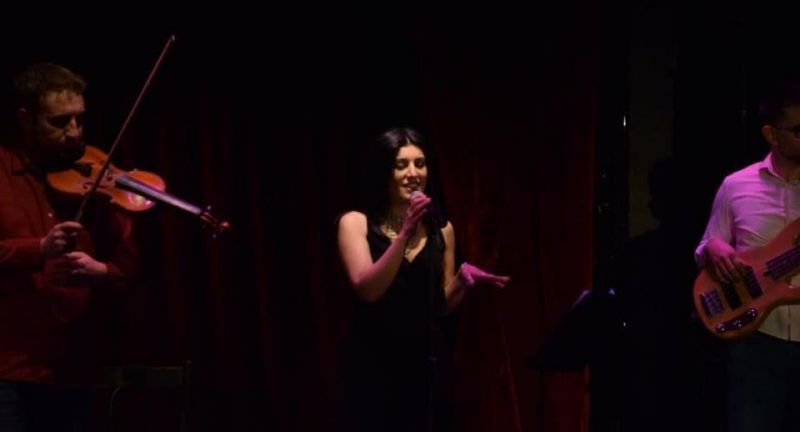 Spotlight and leadership change with each song. In “Tamam Ashkharh,” Alin Naccashian (vocals) and Shahan Kilaghbian (double bass) lead. (Photo courtesy of Garabala)
Spotlight and leadership change with each song. In “Tamam Ashkharh,” Alin Naccashian (vocals) and Shahan Kilaghbian (double bass) lead. (Photo courtesy of Garabala)
L.G.S.: Garabala doesn’t have a conductor, yet it always feels like one of the players takes the lead. It’s almost like a silent agreement in trust and care. How do you achieve this?
H.H.: We are in constant communication with each other when on stage and use some previously agreed queues and routines. The way we arrange ourselves is very carefully decided. We have experimented with different layouts until we have found the one which best suits us. Leadership on stage is all about creating dynamic energy so that the rest can follow. Spotlight and leadership change with each song. For example, in “Tamam Ashkharh,” Alin (vocals) and Shahan (double bass) lead, and in “Sev Blouse,” perhaps due to the very structured 16 bar blues rhythm, the percussion and the bass lead. Then in “Vosdigan,” Khatchig, being the most physical, creates this energy. In songs like “Habrban” and “Nor Hayasdan,” where accordion solos are frequent and prominent, the band follows Sebouh, and similarly, in “Ghapama,” it’s Hagop, with his sax solos, who takes the lead, while where the rhythm is dictated by the strumming guitar, it’s Hrag’s turn to lead. The players motivate each other, allowing the energy to flow.
L.G.S.: You’re perhaps notorious in insisting that each of you have a say in every decision you make and in every musical arrangement you come up with. What stops things from becoming chaotic or self-defeating?
H.H.: A big shout-out here to our manager, Patil Yessayan, who manages to keep things in order. The culture that exists among the members contributes to the success of the band. Garabala’s wellbeing is above our personal considerations. Everyone is aware of their roles. If you eliminate one person, things change. Each one of us cares about hearing the others’ opinions since we believe our fellow members’ intentions are constructive and never judgmental. This culture creates a healthy environment, where the band’s quality standards are monitored. It allows better attention to detail and helps to preserve the unique Garabala sound.
Garabala’s wellbeing is above our personal considerations. Everyone is aware of their roles. If you eliminate one person, things change.
Hagop Harfoushian
K.H.D.: We’re a bit fastidious. This is a characteristic that we hold in common. We may work on a song for months, yet, if a band member doesn’t feel comfortable with how it sounds, we opt not to play it. Or we may put a song on stage, find that it lacks some artistic elements, and forget about it for a long time, even if we find that the audience likes it. It might seem like a waste of time, but it’s not.
Another factor to consider is the innovative merit. We do not simply include new songs in our repertoire but deconstruct a familiar song in order to build it anew, in our own style. Given that we live in different countries, it’s not easy to shape the structure of a song. We must rely on recorded material in order to test how a chord sounds and experiment with variable speeds. It’s like working with a machine. This, of course, is no excuse. When we perform above head height relative to the audience, it’s our moral duty to be at our best.
L.G.S.: Can you relate an incident where things on stage got out of hand?
K.H.D.: There can be awkward situations on stage. Nothing is worse for a well-built violinist than a head-on struggle with a dead microphone hanging in the air. Other members of the band—like the guitarist and percussionist—are seated and are less of a focus, no matter how much energy they release. However, as a violinist at center stage and constantly moving, you have to pretend that nothing is wrong and maintain your energy while playing your part—to keep the concert from falling apart! Such an incident resulted in us purchasing our own microphone for the band!
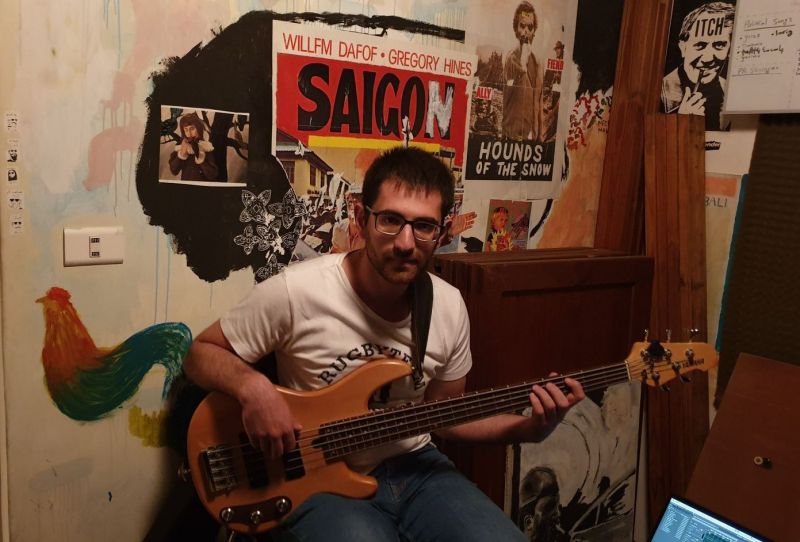 Hagop Harfoushian (Saxophone) on songs challenged by Garabala members: “The songs we arrange are rigorously challenged by band members and aren’t introduced to fans unless every member is comfortable with them. We have many songs that we haven’t released to the public or performed them only once, because we haven’t felt comfortable playing them. In some cases, we have revisited them after some time and arranged them further before their final release.” (Photo: Loucig Guloyan-Srabian/h-pem)
Hagop Harfoushian (Saxophone) on songs challenged by Garabala members: “The songs we arrange are rigorously challenged by band members and aren’t introduced to fans unless every member is comfortable with them. We have many songs that we haven’t released to the public or performed them only once, because we haven’t felt comfortable playing them. In some cases, we have revisited them after some time and arranged them further before their final release.” (Photo: Loucig Guloyan-Srabian/h-pem)
L.G.S.: What goes into arranging a new Garabala song?
H.H.: Arranging a new song is a rigorous process, and each step in this process has its impact on the Garabala sound. It starts with a band member suggesting a song that can potentially be added to the repertoire or jamming together during breaks from practice sessions may lead to the discovery of a new song.
The second step is developing a general structure and discovering the possibilities of rhythmic articulation. This is done either by an individual member, or by the band, during practice sessions, and is perhaps the most critical and time-consuming step, as it dictates how the final arrangement will sound like. Therefore, we spend quite some time trying to optimize this step. We experiment with different genres and rhythms, introduce solos, combine different songs together in a medley, try different beginnings and endings, and so on.
Finally, the orchestration takes place: the assignment of different instruments for each musical line often comes in naturally. This process takes an average of four to six practice sessions (each around two hours long).
K.H.D.: The structure of the repertoire is equally important as the quality of the songs we seek to achieve. A misplaced song can be overshadowed by songs of different genres and can go unnoticed. Giving a song too prominent a place may kill it as well. Our fans have their own demands, however, you cannot place all your songs at the beginning or at the end of a repertoire. Once we ended a concert with “Mer Dan Idev” instead of “Habrban.” The audience was roaring with excitement but wouldn’t let us go until we played “Habrban!”
L.G.S.: Looking back at videos made during those early years when the band was known only in Beirut, would you change anything in your musical journey? What do you aspire to achieve or overcome?
K.H.D.: In retrospect, it would have been better to focus on our music when all the members were still in Beirut; to work with the same intensity as we have been working lately. We had been too busy with other duties to give Garabala the full attention it required. It was not a priority in a meaningful way. We realized this when some of us had to leave the country—and we started to feel a bit guilty about it. It’s only human to give your full input after waiting for results. However, the opposite is true: Your input determines the results you intend to achieve. We had to work it out for ourselves.
Now that Garabala has become a priority, things have changed. Each of us has our own career outside of the band, which means we can afford to be scrupulous and set up standards for ourselves to experience a sense of fulfillment.
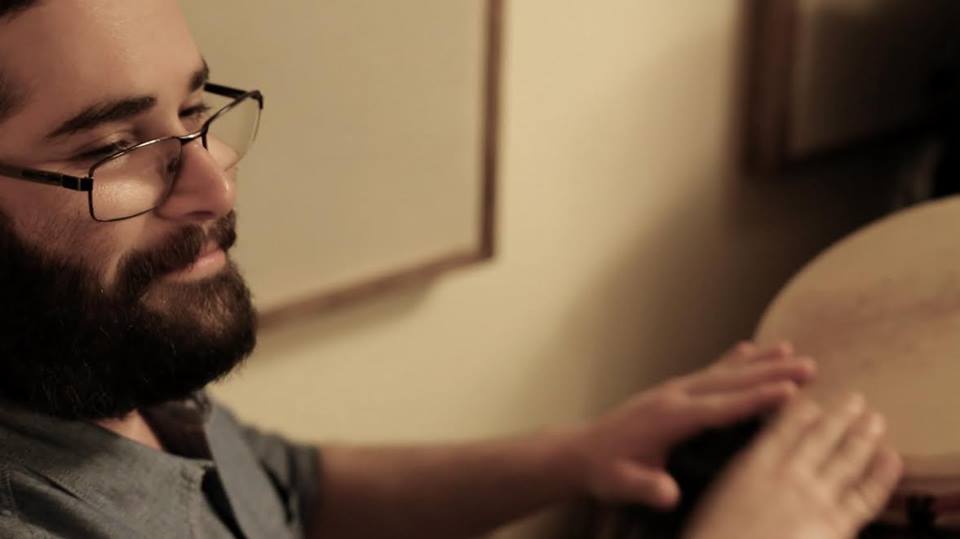 Aram Papazian (percussion) on the importance of experimentation in music: “Just experiment and enjoy the science behind listening, practicing, and jamming.” (Photo courtesy of Garabala)
Aram Papazian (percussion) on the importance of experimentation in music: “Just experiment and enjoy the science behind listening, practicing, and jamming.” (Photo courtesy of Garabala) L.G.S.: What piece of advice would you give to aspiring young musicians like you who dabble with folk music?
Aram Papazian: Listen to different styles of music and their sub-genres; practice various styles even if you have to play along a track and paddle through it with your instrument; jam with musicians of different genres; try and come up with a “dish” by merging different musical styles and intentions to create a fusion.
Garabala will stage two concerts on Friday, June 21 and Saturday, June 22, at their favorite venue, Metro Al Madina in Beirut (doors open at 9 p.m.).
Video
Join our community and receive regular updates!
Join now!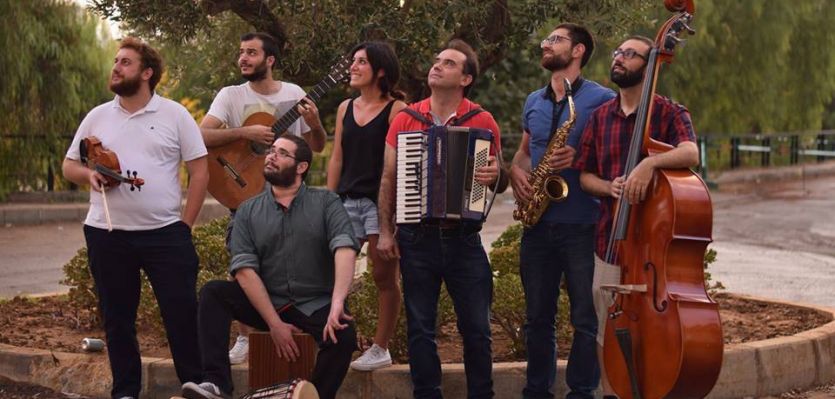
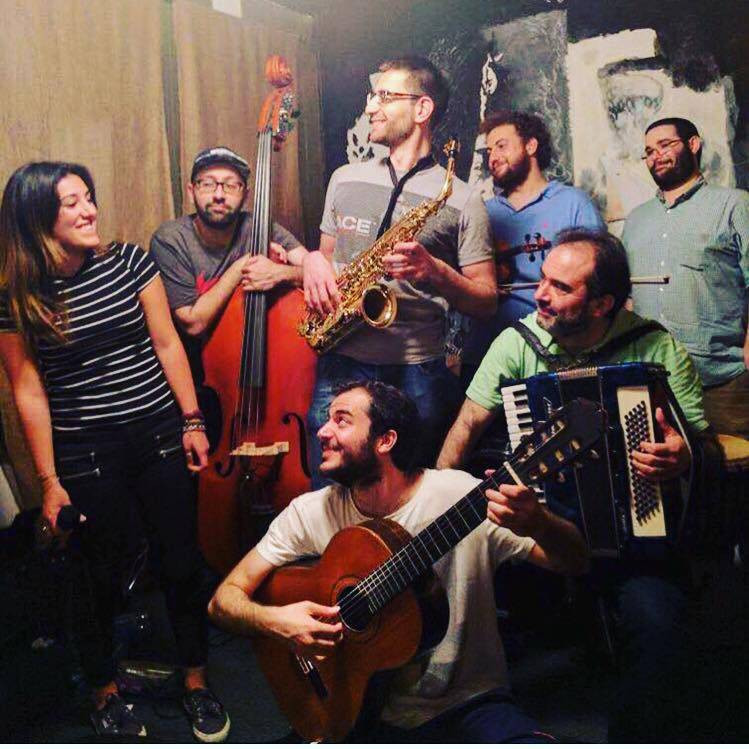


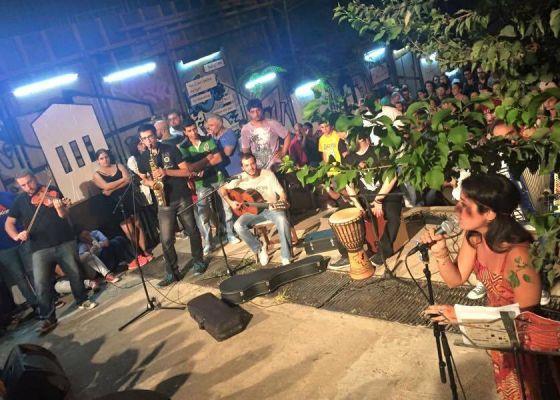
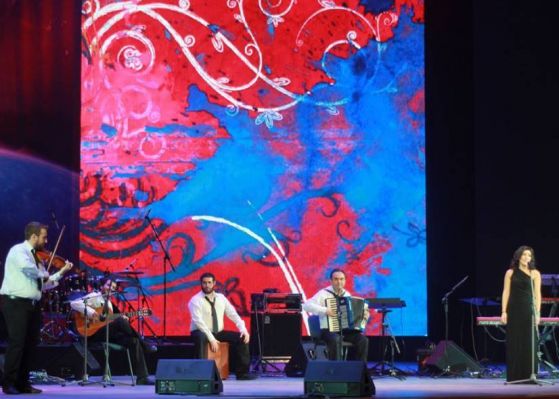
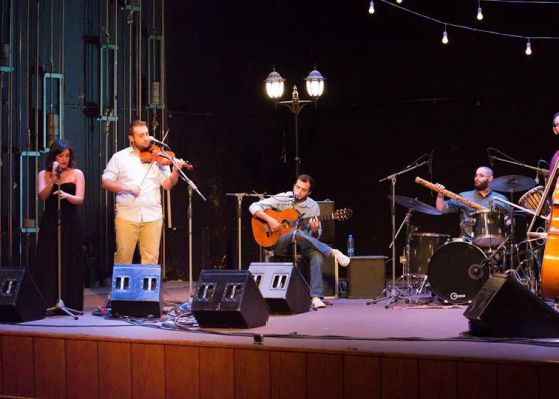



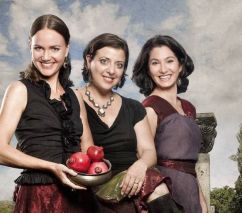


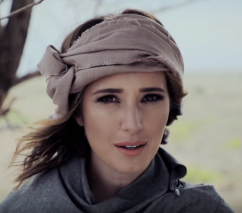

Attention!